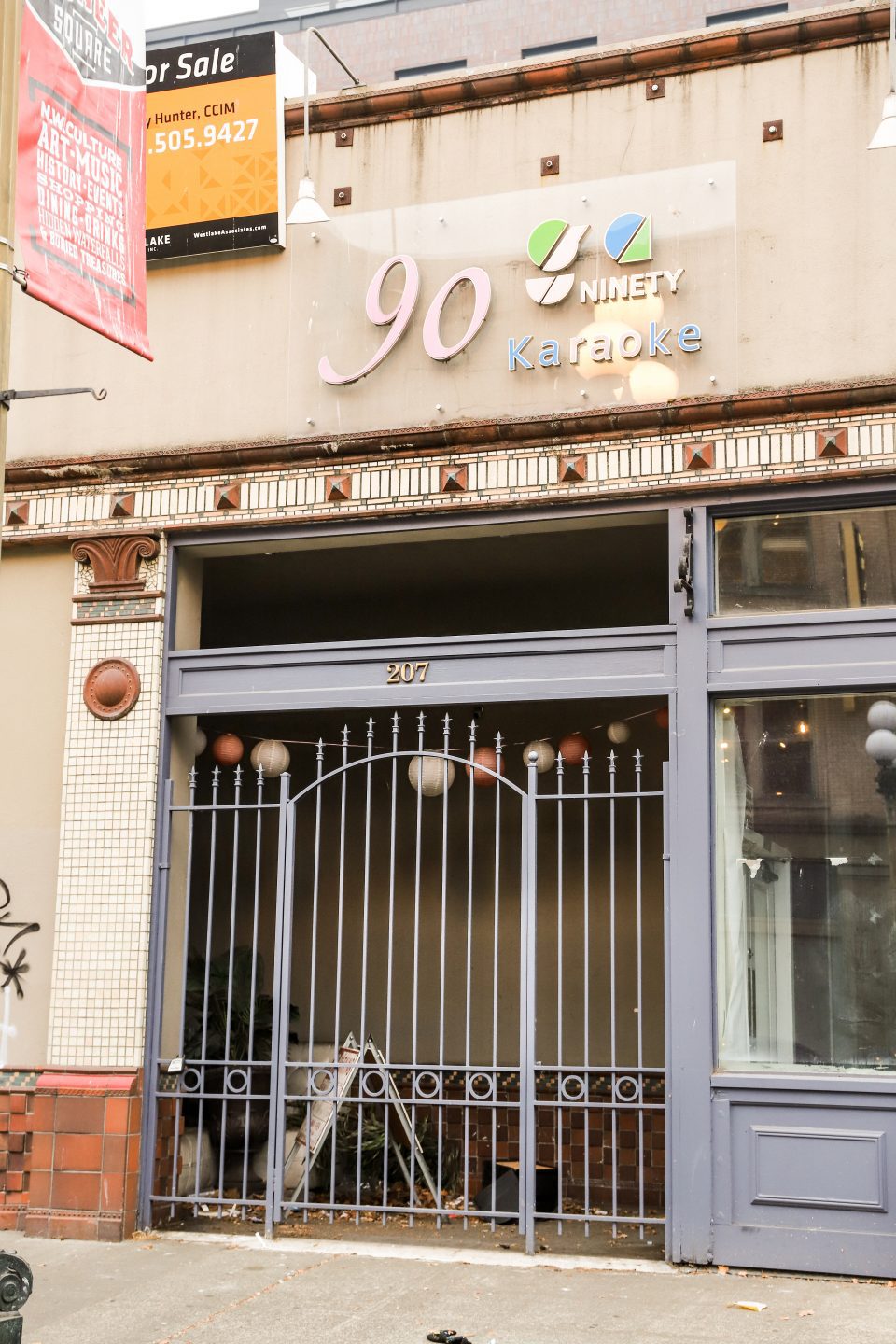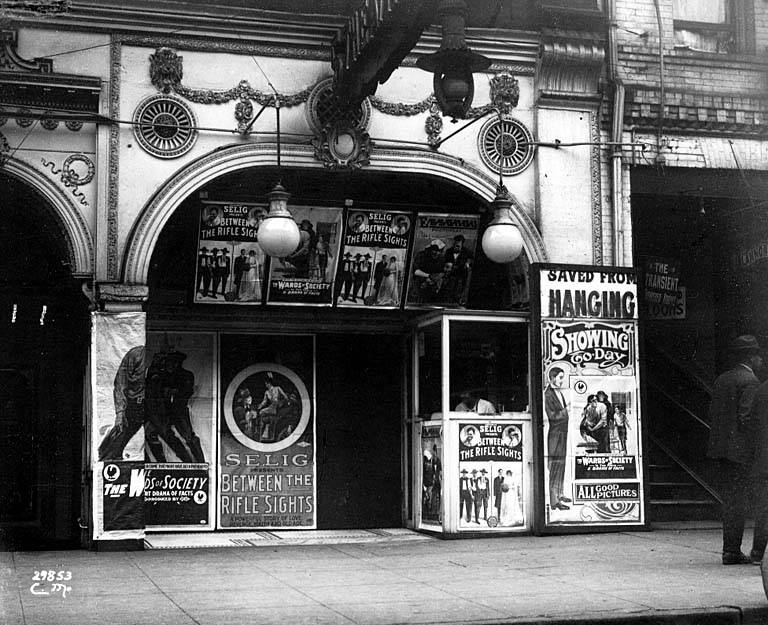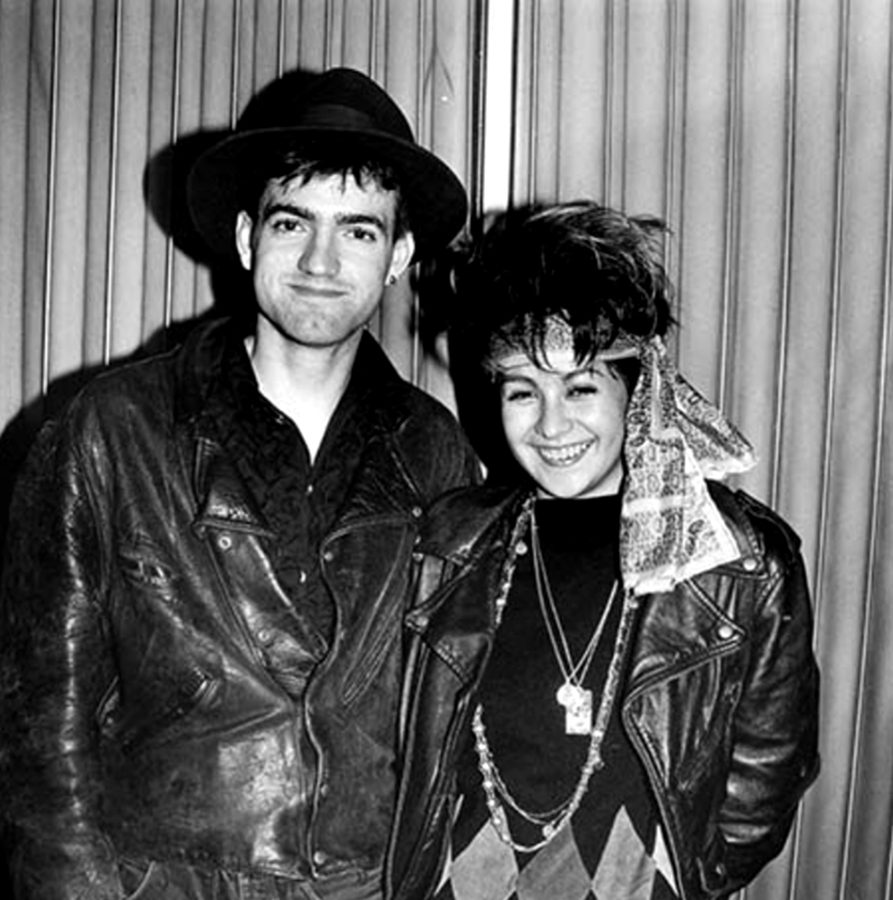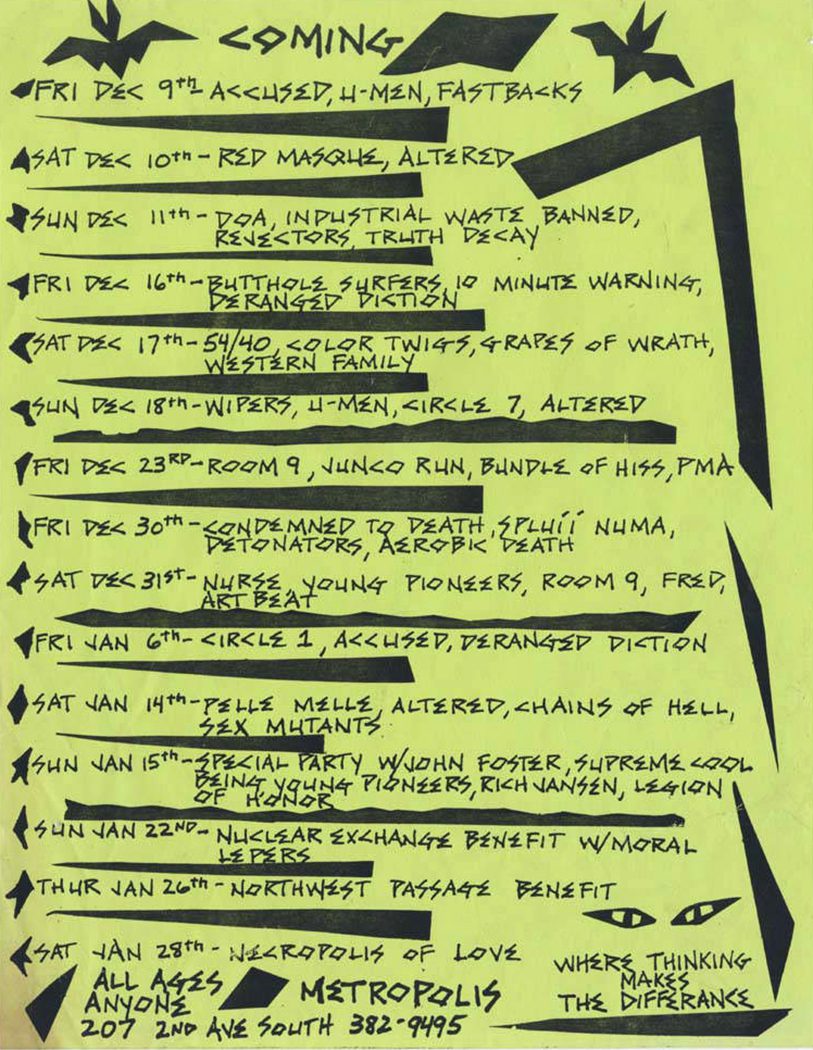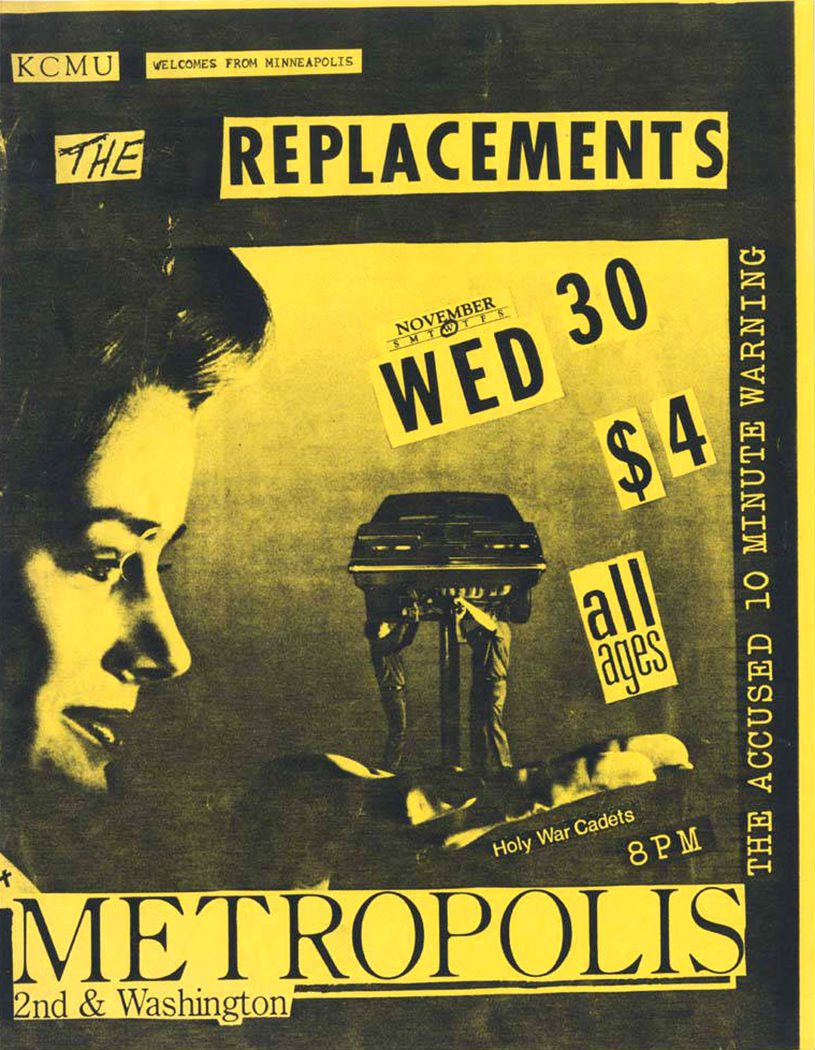-
The Metropolis
207 2nd Avenue Extension S
A three-story hotel was built here in 1890. In 1900 the site was home to a rollicking nightspot called the A. C. Club. In 1901, Dal Lampman placed ads seeking a “moving picture machine” and a female pianist. In 1902 it was a tattoo parlor; in 1906 it was the Tivoli Oyster Co.; and in 1910 the Arcade Hall.
In 1911 Frank Reber and Charles Ruud opened the Tivoli Theater, which was the regular site of boxing matches, movies, and other entertainments. In 1914 it was the Penny Arcade. From 1925-1927 it was a shooting gallery. In 1925 it was sold as a “store and hotel” property. Eventually a tavern-café opened here. By 1961 it was recast as the Golden Horseshoe, a gay club with the slogan: “Where The Boys Meet.” The Seattle Times noted that one would find: “girls imitating boys and boys imitating girls.” One of the musicians to perform here was Seattle blues singer Bea Smith.
In 1983 Hugo Piottin and Gordon Doucette opened the Metropolis, a short-lived but beloved punk club. It wasn’t Seattle’s first — The Bird [107 Spring Street] had opened in 1978, and the Gorilla Room [610 Second Avenue] in 1980 — but this remarkably successful, all-ages, 300-person-capacity room was run by volunteers, some of whom would go on to have a big impact on the subsequent rise of Grunge. Among them was Susan Silver, who helped work the door and also advised on band bookings, and who later formed a management company that represented Soundgarden and Alice In Chains. The talent was a mix of big-time and local acts. Among the former were the Butthole Surfers, Hüsker Dü, the Replacements, and Scream (pre-Nirvana, Dave Grohl). The latter included the Accused, Deranged Diction (pre-Pearl Jam), D.O.A., the Fastbacks, Malfunkshun (pre-Mother Love Bone), Melvins, Mr. Epp (pre-Mudhoney), the Rejectors, the U-Men, and the Wipers.
Two things led to the club’s demise: the punks drew negative attention for their sidewalk skateboarding, graffiti writing, parked-car vandalizing, shouting, fighting, and bottle breaking; and this new thing called a “condominium” moved in next door with the incoming gentry objecting to loud music and all the rest. The landlord buckled, and the fun ended with a final show by Alien Sex Fiend on March 6, 1984. Since then, the site has been the home of the Norberry Tile Co., the Pacini-Lubel Gallery, and other businesses.
Walk down S Washington Street to our final stop.
